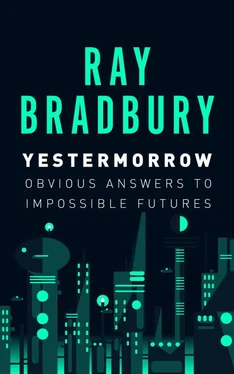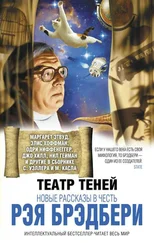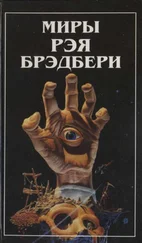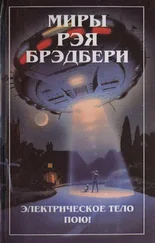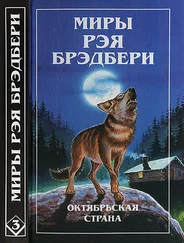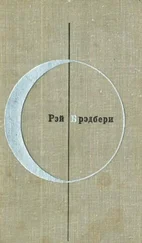We were reunited in joy, as if three years had not passed since our last fireworks. B.B. was, of course, even more the trembling grey moth now; the bones had thinned within the mother-of-pearl, crushed-flower flesh, but his spirits were good and his mind clean. The old testings, the gentle arguments bombarded me before, during, and after lunch, and took up again after a very long siesta, at late-afternoon tea.
B.B. was harboring his strength even more now. He slept later, napped longer, and saved his energy for the various articles, not just one, that he wrote each afternoon before bedding down long before nine. Awake only a few hours a day, he made those hours burn and count.
I had been a good son, of course, listening and doing over the years. I brought B.B. a copy of the first edition of my Dandelion Wine.
“No Martians this time? Good, good. Not that your Martians aren’t fine company, good metaphor. But this, now—this—”
He had come by happy accident on a chapter about an old man named Colonel Freeleigh. His eyes lingered and flashed.
“You’ve caught some of me here, yes?”
“Yes.”
It was the story of an old, old man so packed with years and history that he was, to the town children, a Time Machine. But the Time Machine was in disrepair. The colonel, unable to travel, telephoned far places and had friends hang their telephones out windows in Mexico City, so he could hear the bright trolleys pass, or London as Big Ben struck midnight, or Paris to catch the maniac traffic coursing the Place de la Concorde.
“The difference being,” observed B.B., “Time Machine that I am, I am still running, traveling, in spite of, did I tell you, falling over a precipice. Well, a small cliff. Well, again, into a small ditch. I was out of the car, bending over to examine some flowers, when the car backed up and the open door caught and tossed me head-over-heels!”
“It terrified me to hear a cry,” said Nicky, “and turn and see B.B.—vanished!”
“What a tumble. Nothing broken. Did we have a good laugh, Nicky?!”
“We did!”
“Now, listen,” said B.B. putting aside his teacup with hands that never stopped trembling now. “What else are you up to? Poetry?”
“Very bad stuff,” I said.
“Keep at it, it’ll go well one day. Plays?”
“Mediocre one-acts.”
“That will change! You have a good ear. More films?”
“I’ve promised myself to do only one every four years.”
“Fine. Keep it that way. I’m out of reading matter. Do me another novel!”
“I will,” I said. And I did.
Now there was the last hour of our last day with B.B. to finish out as the sun began to set. We played a game we had started years before of: “Who Owns What And Which and Why?” which has since become a small poem that I have just published.
Who owns October, for instance? Edgar Allan Poe and Thomas Wolfe. Among artists? Goya and Gustave Dore.
Name your own writers, artists, reasons, and start the fight.
Who owns Don Quixote? Dore, again. Think of the mad battler of windmills and his illustrations snap instantly in place. For that matter, Dore owns Dante and Milton and the Bible, too. And London, if you recall the scores of etchings he did in those teeming streets.
Who owns the Beauty of Women in the world? B.B. opted for certain Raphaels, to be argumentative. I had just fallen in love with Botticelli’s creatures of autumn or the birthing seas. We compromised on da Vinci’s cartoon for The Virgin of the Rocks.
Who owns winter? Whittier, perhaps. Perhaps Edith Sitwell.
Christmas, Easter, summer, spring, old people, children, fairies, ghosts, kings, the list can be long and various and the nominations incredibly on-the-nose lovely or unacceptably ridiculous or grotesque.
The last of the sun was gone. Wrapped in great blankets against a sudden chill, we said our good-byes. “And remember,” said B.B. “when you go to museums, only stay for an hour at a time! Don’t exhaust the body so as to exhaust the eye and tire the mind! Good-bye, young lady. Good-bye, dear boy. Remember this tired old man!”
“Oh, B.B.,” I said. I embraced him and felt the trembling that was half age and half unspent ideas so much wanting to burst forth. “Oh, B.B., I always will.”
His death was still two incredible years away. He had many journeys to go before his sleep, and he made as many as he could, dropping me cards along the way, glad for a son who was glad to receive them—the best of sons because I didn’t try to out-best papa or kill him for mom, or embarrass him before his peers. I professed my love to him and Nicky whenever I could. A last card came from them in October 1959, and a few days later the news broke that Mario Lanza, the singer, had died in Italy and, oh, yes, the same day, the art historian, Bernard Berenson. Long articles followed, of course, in every major newspaper and magazine. B.B. did not go quietly to join his friends in another century.
In the late desert afternoon it came to me to think of him in the words of Gerard Manley Hopkins: “What I do is me, for that I came.”
If ever a man entered the world to become himself and know a time and declare its virtues and delineate its boundaries in terms of his own insatiable love and curiosity and light, it was this old man I had described as a Time Machine for us all. The machine had stopped now, but the territory it had mapped was still there, waiting to enhance our lives.
I telegraphed Nicky the same dumb and inadequate words we always telegraph anyone at such a time. I wrote her a week later, recalling the good fact of my last day in Venice when I had bought and brought to his hotel twenty dozen flowers, twenty dozen white marguerites for the living while they lived.
All for B.B. All sent with joy and love from his now and everlasting son.
1979
From sunlit midnights to moonlit noons
Federico Fellini, may his films run forever! Federico Fellini, may the bulb burn out in his projector, may his film run dry.
With a cry of joy you leap off a diving board, proclaiming his genius. Halfway down to what suddenly becomes an empty pool, you imitate those old newsreels, reverse sprockets and let yourself be flashed back up to stand dismayed at your cowardice, half-disillusioned but wanting to jump again.
Such are the feelings when one turns the pages of the giant book, Fellini’s Films , about a giant autobiographical maker of films. And since Fellini is at odds with himself, you share his dichotomy.
No matter what your delights or dismays with the films themselves, this tribute to the Italian genius contains 400 color and black and white stills from his fifteen and a half films, proving that he has a magician’s eye and an imagination born to be locked, if sometimes erratically, into a camera. Complementing the photographs are brief resumes of each motion picture written by Gilbert Salachas and Thomas Bodmer.
In his foreword, Georges Simenon says Fellini is the cinema, “not the commercial or the avant-garde cinema, or that of any particular technique or genre, dramatic, comic or grotesque. He is a director who, using every means at his disposal—sometimes the most unexpected—communicates to us the humanity and the obsessions that seethe within him.”
I agree with Simenon, even though it means an all-night brawl next time I visit a cinema-school’s after-screening beerbust.
For he is indeed the grandson of Melies, the French-film fantasist, son and heir of Charles Chaplin, friend of Lon Chaney. When Fellini walks at night and calls, the gargoyles on Notre Dame waken to play parts. Quasimodo comes down and in new shapes speaks lines in La Strada and Satyricon , or lies a nameless monster on the beach in La Dolce Vita , surrounded by bored sophisticates who, momentarily touched by repulsion and sadness, wander off to their dooms.
Читать дальше
